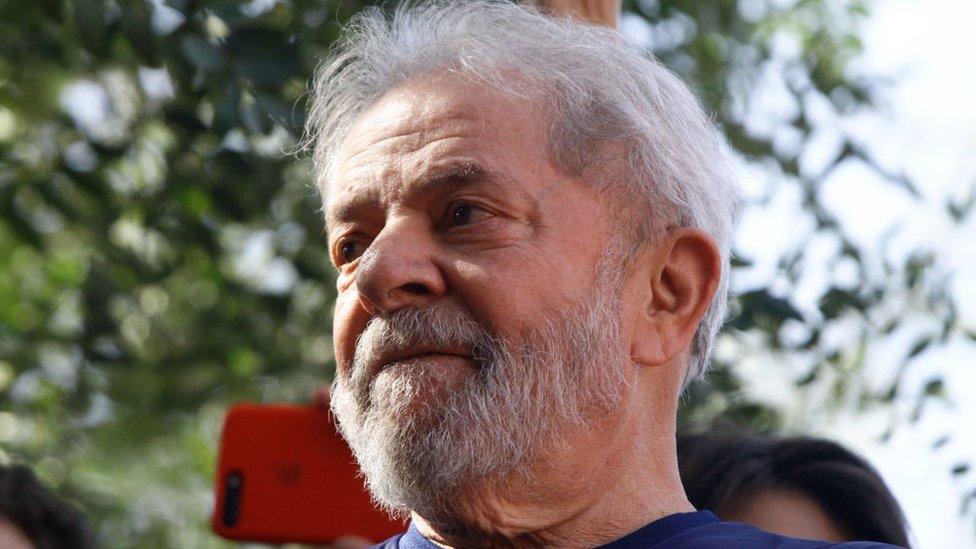Brazil justice minister Sergio Moro denies conspiring against Lula
- Published
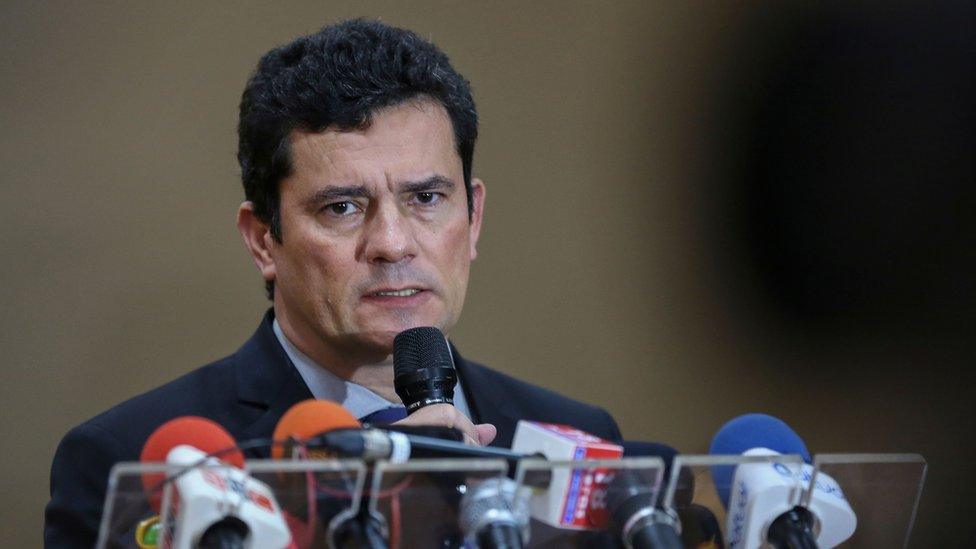
Sergio Moro has criticised The Intercept for not revealing the source of the leak
Brazil's Justice Minister, Sergio Moro, has denied claims he conspired to keep leftist former president Luiz Inácio Lula da Silva out of the 2018 election.
The Intercept news site published what it says are messages sent by Mr Moro while he was presiding over Brazil's biggest corruption investigation.
The "Car Wash" inquiry led to dozens of businessmen and politicians being imprisoned, including Lula.
Mr Moro has accused The Intercept of obtaining the messages illegally.
Lula, the 73-year-old who led Brazil from 2003 to 2010, has denied all of the corruption charges against him and says they are politically motivated.
What was in the leak?
The Intercept published excerpts of the messages on Sunday, saying they had been sent on the encrypted messaging app Telegram during the five-year inquiry.
They were leaked by an anonymous source, the site added.
In the messages, Mr Moro - then a judge - appeared to make suggestions to prosecutors about the pace, focus and order of the anti-corruption investigations.
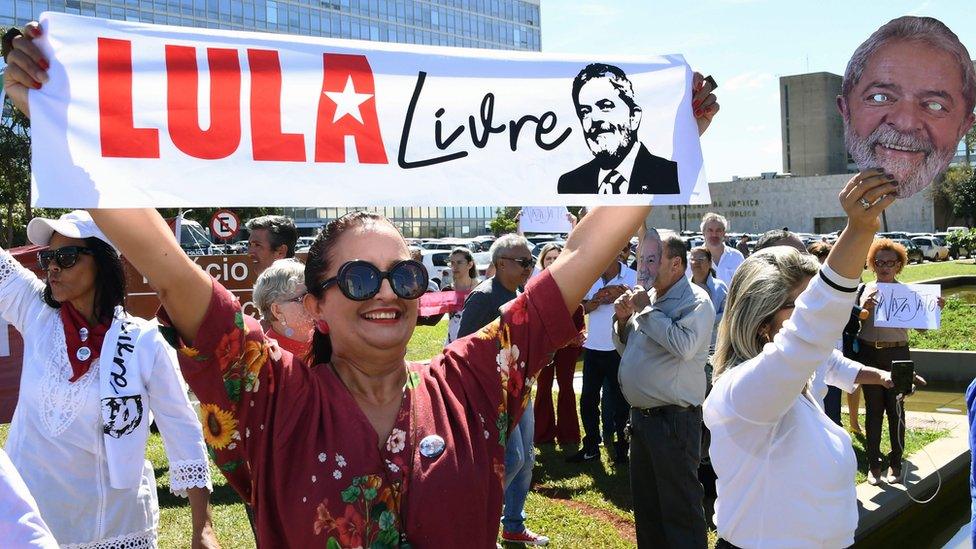
Lula supporters protesting in front of the justice ministry on Monday
"With these actions, Moro grossly overstepped the ethical lines that define the role of a judge," the report said. "In Brazil, as in the United States, judges are required to be impartial and neutral, and are barred from secretly collaborating with one side in a case."
The site also said this was just the beginning of the story - that the excerpts were a small part of a "large trove" of leaked messages between Mr Moro and anti-corruption prosecutors.
What has Sergio Moro said?
In a statement released on Monday, Mr Moro criticised The Intercept for not naming their source, "the person responsible for the criminal invasion of the prosecutors' cell phones".
He also denied improper conduct, saying there was "no sign of any abnormality or directing of actions as a magistrate", and said the messages had been "taken out of context".
The team of federal prosecutors behind Operation Car Wash also released statements saying they had acted properly throughout, Reuters news agency reports.
- Published8 April 2018
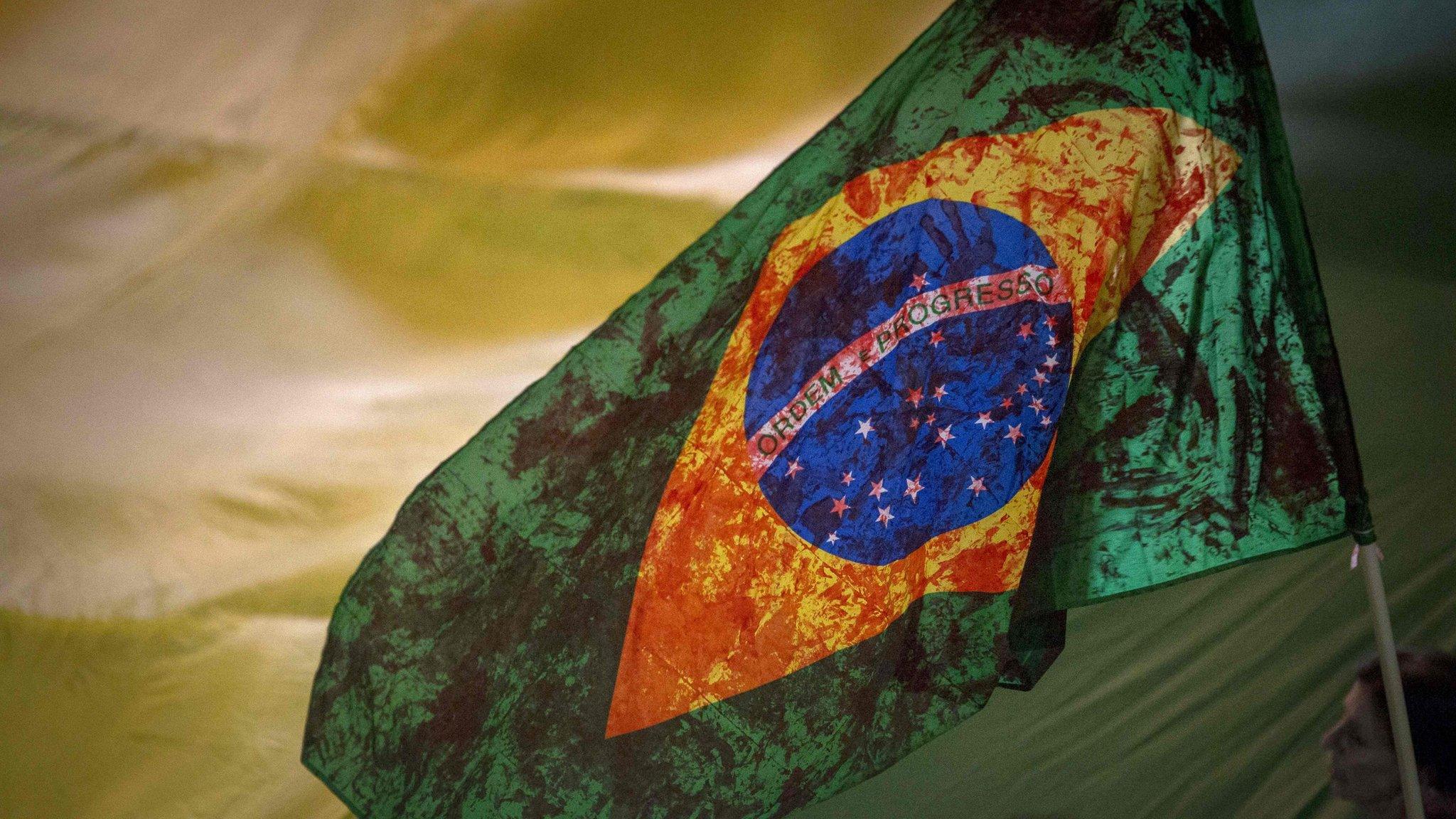
- Published6 December 2018
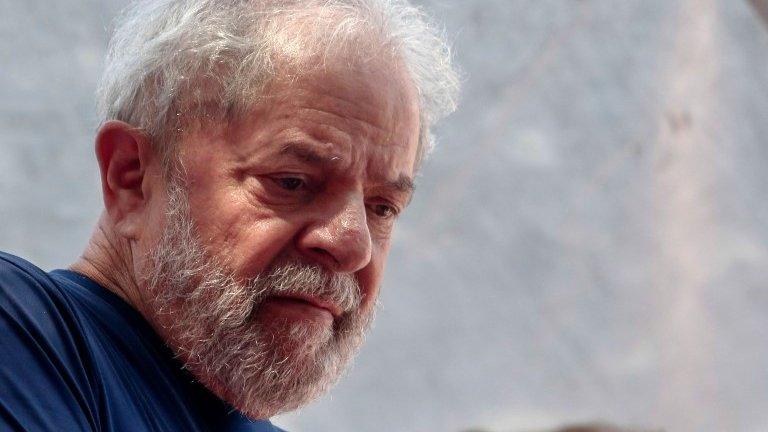
- Published3 March 2019
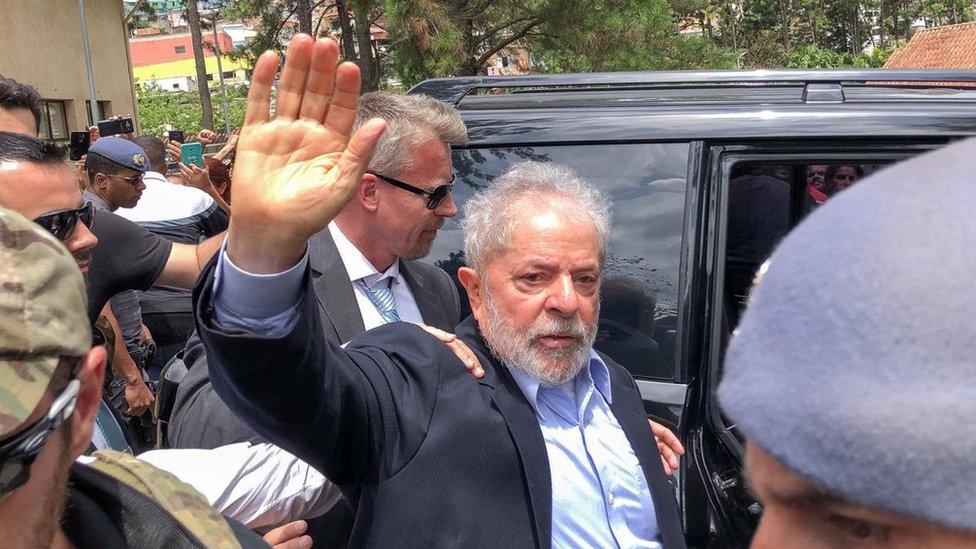
- Published6 February 2019
